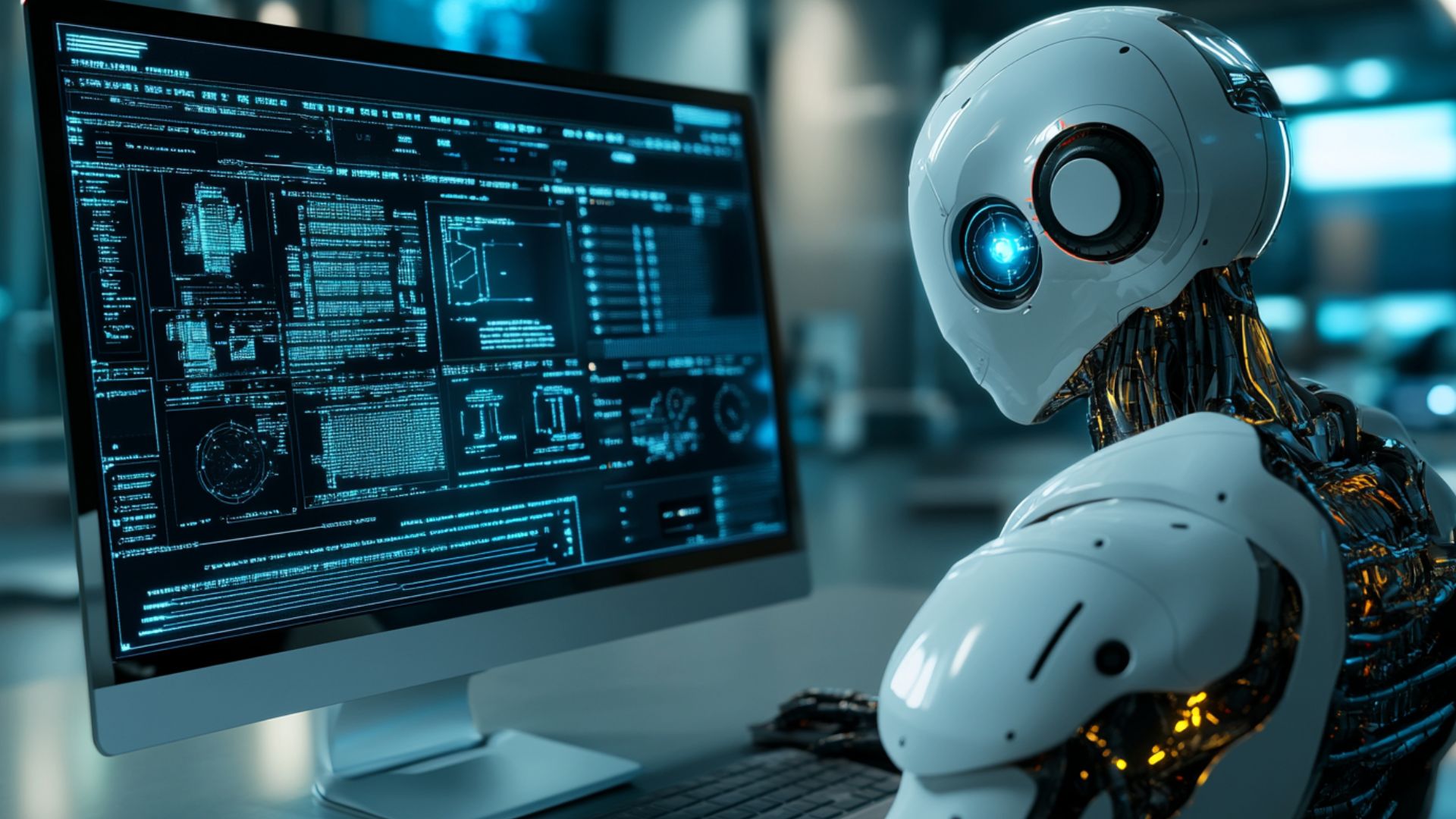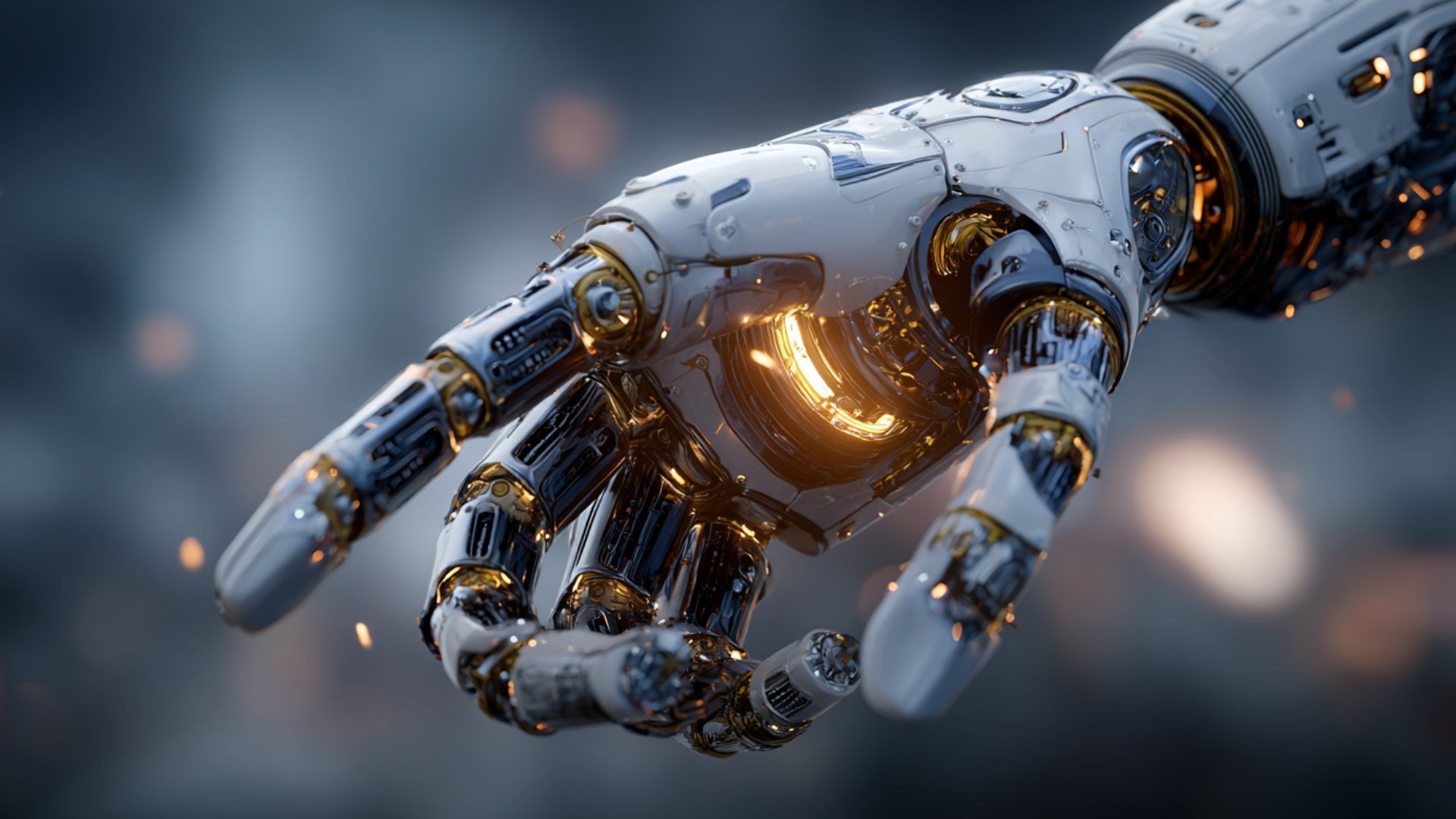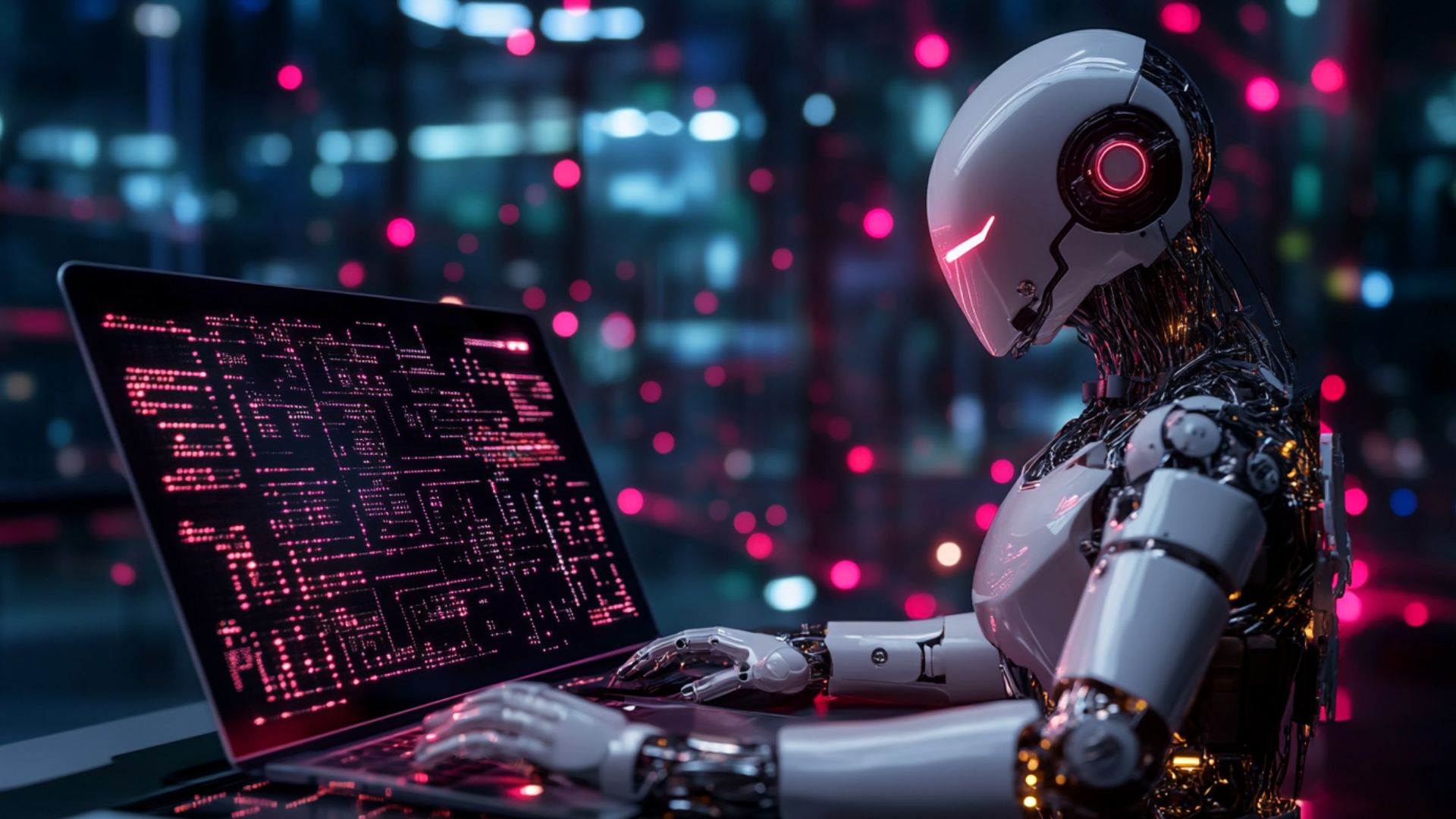Digital Workers Driving Innovation in Construction AI Software

Almost all areas of our lives have changed quite a lot with the advent of new technologies. And it is not surprising because technology greatly simplifies many processes. For example, doctors use the latest technologies for more accurate operations, and commerce uses technology to increase customer satisfaction. There are thousands of such examples, if not more. But would you think that construction has also undergone meaningful changes?
Artificial intelligence and automation are becoming essential helpers in the construction industry. On some sites, you can also notice digital workers. Automation in construction is not news but something that should have been there long ago.
Of course, we are used to construction as manual labor and complex processes. But artificial intelligence has completely changed this sphere of activity. It allows us to automate many complex and time-consuming processes. Digital workers analyze huge amounts of data. And what is the result? Let's just say that thanks to many programmed processes, they can anticipate problems before they occur. And if they can do these processes, the project completion process will be more efficient and safer.
With each breakthrough, automation in the construction sector comes closer to the future. These buildings are not just structures but intelligent systems that adapt and evolve.
The Role of AI in Revolutionizing Construction
Artificial intelligence (AI) in construction is transforming the entire construction industry. It is revolutionizing the way projects get planned, designed, and delivered. AI technologies analyze massive amounts of data. It allows you to optimize workflows and improve decision-making. For example, AI-powered software can generate accurate estimates and schedules. It helps project managers make informed decisions faster. There are several leading examples:
- The first example of AI-enabled software for construction is Procore. It optimizes project management tasks.
- Smartvid.io is also worth a look. It uses artificial intelligence to improve safety through video analytics.
- Autodesk's BIM 360 is another prime example. It uses artificial intelligence to detect inconsistencies in building designs before construction begins. It saves time and resources. These tools don't just improve efficiency. They reduce errors and minimize risks on construction sites.
By harnessing the power of automation in building construction, the industry is entering a new era of innovation. With more innovative planning processes, AI is increasing productivity. It is changing the way construction projects come to fruition.
Automation's Emergence in the Construction Industry
Automation is rapidly gaining momentum in the construction sector. It is revolutionizing the traditional ways of working. Various processes are now automated. For example, bricklaying, concrete pouring, and material loading are all done by machines. It reduces manual labor and potential errors. The benefits of automation in the construction industry are many:
- First, it speeds up project timelines. It allows tasks to get done faster and with fewer errors.
- Second, it improves accuracy by providing precise measurements and alignment.
- Finally, automation dramatically improves safety. It minimizes the need for workers to perform dangerous tasks.
Overall, the advent of automation in construction represents a significant shift. In the future, automation will likely play an increasingly important role.
The Intersection of Robotics and Automation in Construction
In the construction industry, robotics and automation are becoming increasingly important. These robots aim to perform specific tasks. It improves efficiency and accuracy on the construction site. They perform various tasks. These include, for example, material transportation and structural inspection. The integration of robotics with artificial intelligence (AI) is remarkable. This combination allows robots to solve complex tasks autonomously.
For example, robots with AI can analyze data to determine optimal material handling routes. Similarly, robots use AI algorithms to identify potential problems when conducting structural inspections. It ensures that buildings meet safety standards.
This integration of robotics and AI is revolutionizing construction practices. It optimizes processes and improves productivity and safety. The combined use of robotics and AI impacts automation in the construction industry. It leads to better results and increased efficiency in the industry.
Analyzing the Impact of Automation in the Construction Industry
Construction AI software has had a profound impact. They have significantly increased productivity by streamlining processes. They allow you to complete tasks faster and with fewer errors. Improved efficiency leads to cost savings for construction companies. They can reduce labor costs and minimize material waste. However, introducing automation into the industry is not without its challenges:
- The initial investment can be significant.
- Workers accustomed to traditional methods often resist change
- Implementing automation requires specialized training for employees
Digital workers play a crucial role in managing and optimizing automated systems. They monitor operations and troubleshoot problems that arise. They ensure the smooth functioning of technology. In addition, digital workers analyze data to identify areas for further optimization. They maximize the benefits of automation while addressing its challenges. Automation combined with the expertise of digital workers has the potential to revolutionize.
Digital Workers: Pioneers of Construction Automation

Digital workers are the pioneers of construction automation. They are bringing automation into the construction industry, which means using it to the forefront. In the construction industry, digital workers are the people who are harnessing the power of AI and automated software. They are driving the integration of technology into traditional construction practices.
These digital workers enable more efficient project management and execution. It comes through the use of advanced AI applications. They analyze massive amounts of data to:
- optimize workflows
- Improve decision-making processes
- Identify potential risks and inefficiencies
By applying artificial intelligence in construction, digital workers ensure timely project delivery. They can stay within budget and maintain the highest quality standards.
Construction companies are entering a new era by embracing digital workers and AI technology. Digital workers pave the way for a more streamlined and productive construction industry. It is where technology plays a central role in driving progress and success.
Advancements in Construction AI Software Powered by Digital Workers
People have developed construction AI software with the help of digital workers. And it has already achieved significant success. Let's take a closer look at some of the notable successes of this field:
- Predictive analytics for project risk management. Digital workers use artificial intelligence algorithms to analyze massive data sets. It makes it possible to identify potential risks before they occur. This proactive approach enhances decision-making. It minimizes project delays and cost overruns.
- Optimizing design to development and construction of structures. Digital workers use AI to create design alternatives. They do this by considering cost, sustainability, and functionality. This optimization process leads to more efficient and innovative designs. It ultimately improves project outcomes.
Case studies highlight the significant contribution of digital workers to project innovation. For example, in a large-scale infrastructure project, digital workers used AI-based risk management software to identify critical issues early, saving time and resources. Similarly, in architectural design, digital workers collaborated with AI software. It has created energy-efficient designs in the construction industry with the help of automation.
Implementing Automation in Building Construction
Implementing automation and AI in building construction starts with careful planning. In the initial stages, project managers assess which tasks can become automated. They identify suitable AI technologies. Experts and specialists work together to ensure that solutions meet project requirements.
For successful integration of automation in construction, interoperability is essential. Training programs need to be in place to equip workers with the skills to work effectively with digital tools. Regular communication and feedback facilitate a smooth transition and problem-solving.
Performing work on-site involves deploying digital workers. It is necessary to monitor automation processes and troubleshoot issues. Continuous monitoring and adjustments optimize performance and ensure project goals are still met.
Successful integration depends on careful planning, effective communication, and support. With automation in building construction, projects can achieve greater efficiency, accuracy, and success.
The Future of Automation in the Construction Industry
As automation in the construction industry means development, the future holds exciting possibilities. Digital workers equipped with advanced capabilities. They will lead to significant changes in the planning and execution of construction projects. Here are some potential future trends:
- Robotic Construction Workers. Expect to see an increase in the use of robots for tasks such as bricklaying, welding, and demolition.
- AI-Powered Project Management. AI algorithms will help with scheduling, resource allocation, and risk management. It increases the efficiency of projects.
- Smart Construction Materials. Sensor-enabled materials will allow real-time monitoring of structural integrity.
- Autonomous Construction Vehicles. Self-driving equipment and vehicles will streamline site logistics and transportation.
- Predictive Maintenance. AI will predict equipment failures, reducing downtime and maintenance costs.
- Generative Design. Algorithms for robotics and automation in the construction industry will generate optimal designs. It is based on constraints and design goals, leading to more efficient designs.
- Drones for Site Monitoring. Drones equipped with cameras and sensors will transmit data from the air. It will help inspect the site and track the work's progress.
- Virtual Reality Training. Virtual reality simulators will allow workers to receive immersive training. It improves safety and develops skills.
Conclusion
To improve the impact of automation in the construction industry, it is essential to use advanced tools. And it is Newo.ai that can help you do just that. With its advanced capabilities, Newo.ai can optimize project management. It will improve decision-making and drive innovation in construction processes. Let's take action today to seize opportunities with Newo.ai on our side. Together, we can build a brighter and shinier tomorrow for the building sector.
FAQ
Digital workers in construction utilize artificial intelligence and automation technologies. It allows for more accurate optimization of processes and improved decision-making.
Some challenges associated with implementing automation in construction include significant initial investment, resistance to change from workers accustomed to traditional methods, and the need for specialized training for employees to use automated systems effectively.
Potential future trends in construction industry automation include the emergence of robotic construction workers to perform tasks such as bricklaying and welding, project management using artificial intelligence for scheduling and risk management, the development of smart building materials with real-time monitoring capabilities.


